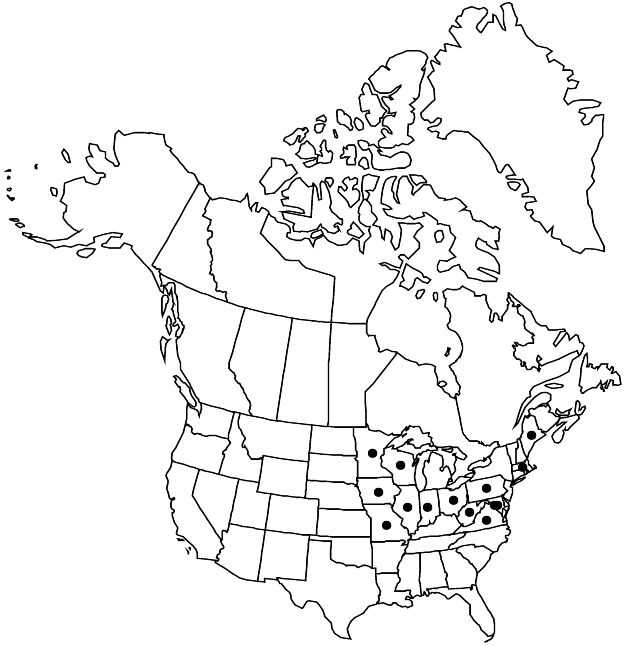Difference between revisions of "Silene nivea"
in A. P. de Candolle and A. L. P. P. de Candolle, Prodr. 1: 377. 1824.
FNA>Volume Importer |
FNA>Volume Importer |
(No difference)
| |
Revision as of 22:35, 16 December 2019
Plants perennial, rhizomatous; rhizome elongate. Stems erect, simple to sparingly branched, leafy, 20–70 cm, glabrous to puberulent, especially distally. Leaves 2 per node, sessile or short-petiolate, largest near mid-stem region, reduced and withering proximally, blade elliptic-lanceolate, base cuneate or rounded, apex gradually acuminate and acute, glabrous to puberulent. Inflorescences cymose, (1–)3–5(–12)-flowered, open, leafy. Pedicels 1/2–21/2 times calyx, apex often becoming deflexed, glabrous to hirsute. Flowers: calyx green, obscurely 10-veined, broadly tubular to campanulate, ± constricted at base around carpophore with broad umbilicate base, becoming broadly clavate in fruit, 14–17 × 5–9 mm, herbaceous, glabrous or hirsute, veins green, without pale commissures, lobes triangular, 2–3 mm; corolla white, clawed, claw equaling calyx, expanded distally into 2-lobed limb, limb oblong, 6–7 mm, appendages oblong, 1–1.6 mm, margins ± entire; stamens short-exserted; stigmas 3, short-exserted. Capsules globose, equaling calyx, opening by 3 broad teeth that sometimes split to form 6; carpophore 5–6 mm. Seeds dark brown to black, with grayish bloom, broadly reniform, not winged, 0.7–1 mm, sides with concentric crescents of low tubercles, larger and deeper on outer margins. 2n = 48.
Phenology: Flowering late spring–summer.
Habitat: Alluvial woodlands
Elevation: 0-400 m
Distribution

D.C., Ill., Ind., Iowa, Maine, Md., Mass., Minn., Mo., Ohio, Pa., Va., W.Va., Wis.
Discussion
The green, obscurely veined, umbilicate calyx with its broad base constricted around the carpophore is unique among the North American members of the genus. Silene nivea is occasionally weedy. It was introduced near Québec City (ca. 1969) but did not persist, and probably is not native also in Maine.
Selected References
None.